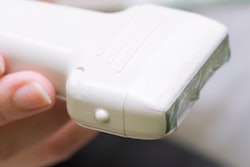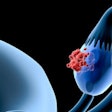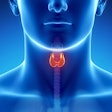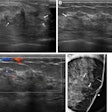
Physician assistant students prefer hands-on point-of-care ultrasound (POCUS) education as opposed to self-directed training, a study published March 15 in WFUMB Ultrasound Open has found.
Researchers led by Harrynauth Persaud, PhD, from York College in New York found that only 38% of students considered self-directed online learning to be a good way to learn about POCUS.
"POCUS will continue to be an important component of bedside medicine, and it is important for physician assistant programs to find ways of incorporating POCUS into their curriculum," Persaud and colleagues wrote.
Point-of-care ultrasound has come under increasing demand in healthcare with its ability to make rapid diagnoses at the bedside. While about one-third of U.S. medical schools use POCUS in their curriculum, only about 15% of physician assistant schools do so. Persaud's team assessed the feasibility of online, self-directed POCUS training in a physician assistant curriculum.
The group conducted a study that included 57 physician assistants who underwent the training between 2019 and 2020. Participants had one semester to complete the training, and most reported not using POCUS before or not being comfortable using it.
The students completed an introductory training session offered via video and then were assigned several core clinical modules to work through. The modules had students review the sonographic anatomy of organs, physiology, and sonographic techniques. The students needed to achieve a score of 70% or higher on tests to progress through the modules.
After completing the core clinical components, the students moved on to advanced modules such as case studies, procedure-specific regional anatomy, and sonographic anatomy, among others.
While most of the students reported that learning POCUS would make them better clinicians and improve patient outcomes -- and recommended that the program incorporate POCUS training -- they did not agree on the best delivery format, as indicated below:
- 62% of survey respondents disagreed or strongly disagreed that a self-directed, self-paced, online learning format was good for learning POCUS. The other 38% either somewhat agreed, agreed, or strongly agreed.
- 50% of respondents either agreed (15%) or somewhat agreed (35%) that they had acquired the basic skills after the period of self-directed training, the response was an even split. The other 50% either disagreed (42%) or strongly disagreed (8%).
- The most common comments from study participants stressed that POCUS learning is more effective in a hands-on environment and taught by professors.
The study authors called for continued research to make more data available to physician assistant programs when it comes to the best methods for POCUS training.
"It is important for [physician assistant] programs to evaluate all aspects of a proposed POCUS training, including whether students subjectively feel able to use this tool after the training is complete," they concluded.



















